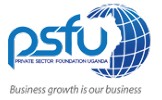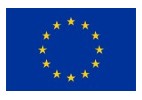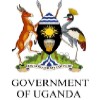Uganda has been selected to participate at this year’s trade and agricultural exhibition in Bologna, Italy, in November. The EIMA international exhibition will attract professionals in agriculture, forestry, animal husbandry and landscaping, specialists in agro-mechanics and industry business people, and offers a vast range of machines, equipment and components for various farming methods.
Addressing a press conference in Kampala on 13th July 2022, Mr Alessandro Malavolti, the president of the Italian Agricultural Machinery Manufacturers Federation said that Uganda was selected because of its stable and good climate for agriculture. “We are in Uganda because it is a very stable country in East Africa with wonderful land and potential to excel in agriculture. It’s important (for Ugandans) to visit such a big global exhibition to understand the latest technology in agriculture and have the same implemented back at home.” he said.
Makerere University associate professor Donald Rugira Kugonza is looking forward to buying some of the machines for feeding and harvesting. “Italians manufacture very good and durable agricultural machines, I have used them before… They should now popularise the availability of their durable machines to those who were not aware about them,” Prof Rugira said. “This is because very few people can fly to Italy to check on these agricultural machines when they should be bringing them here for the local people to have a feel,” he said.
More than 70 percent of the population is employed in agriculture and contributes half of Uganda’s export earning. Ugandans attending the exhibition will benefit from a wide range of products that will be on display including irrigation systems, advanced electronic and information technologies (Digital), gardening and landscaping (Green) and bioenergy supply chains (Energy). Ugandan businesses and farmers can thus find the most suitable means for extensive crops such as maize, rice, sorghum and potatoes, but also for the more typical products of their regions such as coffee, cotton, tapioca and bananas.




